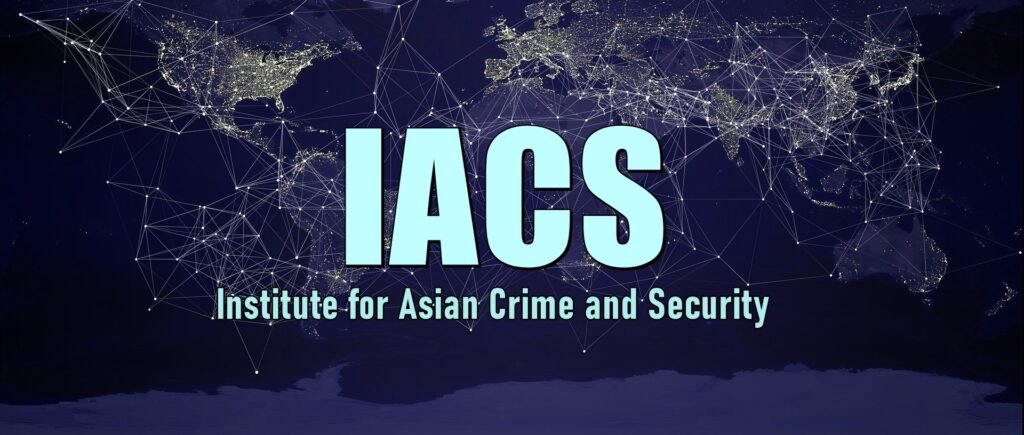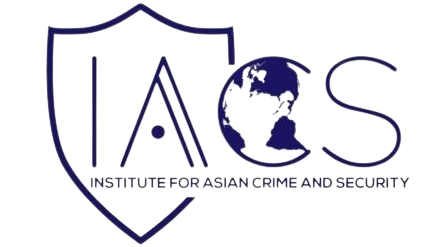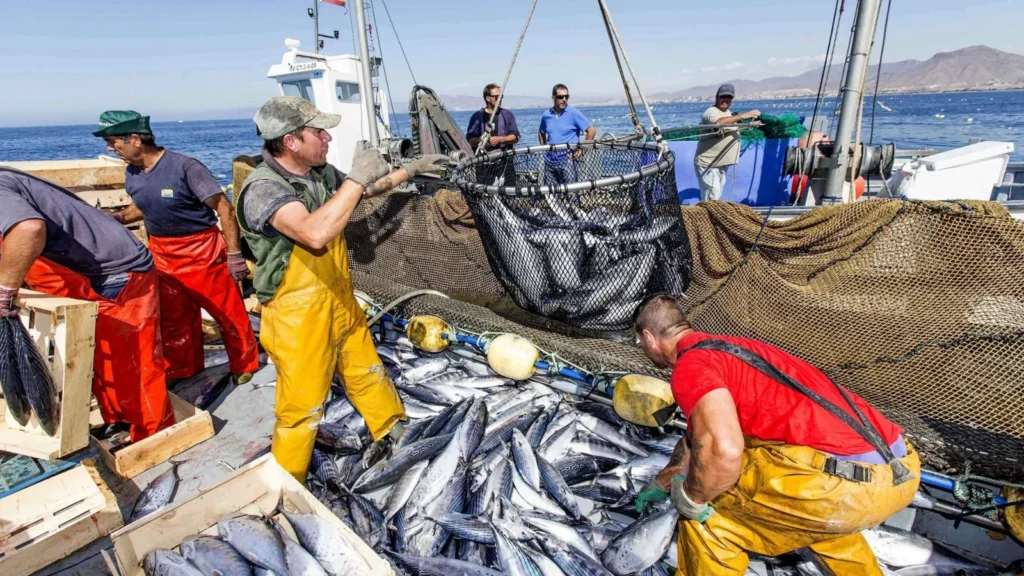The Mediterranean Sea is one of the largest and oldest global commons on Earth. It has sustained human life in and around the surrounding landscape through its rich fishing yields and biodiversity for millennia. Unfortunately, over the last four decades, and despite the efforts of the General Fisheries Commission for the Mediterranean (henceforth: GFCM), the Mediterranean has seen a substantial reduction in biomass levels due to ‘the exploitation of fish stocks outside of their safe biological limits’ (Demirel, Zengin, and Ulman, 2020; FAO, 2020; Osio, Orio, and Miller, 2015). The FAO’s findings were further echoed in a recent stock assessment of fish biodiversity in the Eastern Mediterranean, which indicated that exploited fish populations are on the verge of exhaustion, and will be unable to repopulate in as little as five years’ time (Demirel, Zengin, and Ulman, 2020).
This exploitive practice is called overfishing (Murawski, 2000), and it is a particularly prevalent practice in the Eastern Mediterranean, where coastal communities in nations such as Turkey, Greece, and Egypt (majority vessel holders in the Eastern Mediterranean) are socio-economically reliant on the maintenance and expansion of fisheries. A reliance clearly echoed in the growth of total landings (the catch of fish brought to port) made by Greek (+16.8%) and Turkish (+20.4%) fisheries between 2014 and 2018 (FAO, 2020, p. 23).
The threat of losing a historically lucrative common pool resource should be enough to motivate action, but despite this potential future the sub-region’s major powers remain effectively idle. When coupled with the fact that the GFCM has existed for over half a century without facilitating substantial change to fishing behaviour, one should question if a comprehensive regime is capable of tackling such a complex issue.
The following article argues that nations in the Eastern Mediterranean should shift their efforts away from comprehensive regime structures (such as the GFCM), instead opting to establish a loosely coupled set of political regimes, known as a ‘Regime Complex’ (Keohane and Victor, 2011), in order to effectively counter overfishing. Following a brief overview of Keohane and Victors (2011) Regime Complex Theory (henceforth; RCT) and its core premises of functionality, this article applies RCT’s premises to the Eastern Mediterranean, in an attempt to discern whether a regime complex (henceforth; RC) is a better fit to solve the overfishing in the Eastern Mediterranean than its traditional counterpart.
Regime Complex Theory
A regime complex (RC) is defined as ‘a loosely coupled system of institutions, without an overarching architecture or hierarchy, which exist in an issue-area where powerful actors have varying and ever-changing interests’ (Keohane and Victor, 2011, p. 4). The key assumption of RCT is that those ‘varying interests of actors entail varying incentives to comply with rules and recommendations created by a single comprehensive regime [A traditional regime]’ (Keohane and Victor, 2011, p. 3). Consequently, in a diverse environment ‘a single institutional response is exceptionally challenging to organize’ (Keohane and Victor, 2011, p. 14), as ‘interests, power, information, and beliefs differ; temporally, in different places, and on different issues’ (Keohane and Victor, 2011, p. 3; Keohane and Nye, 2001). It is in this type of environment where non-hierarchical agreements become crucial for the realization of effective solutions, as there is more room to negotiate on specifics of policy and trade-offs than is available in a traditional regime.
From the above conceptualization of RCT, four requirements for effective RC functionality can be discerned:
- a complex issue exists which cannot be solved by a single nation;
- all relevant actors which the issue affects want to find a solution;
- the political environment favours continued institutional fragmentation over a single comprehensive regime; and
- varying interests stemming from this fragmented environment mean varying incentives to act.
According to Keohane and Victor, if all holds true, then the political and institutional environment is more conducive for an RC than a traditional regime. The following section applies these premises to the Eastern Mediterranean to discern whether an RC could effectively function, and therein provide solutions to overfishing in the Eastern Mediterranean.
An Effective Eastern Mediterranean Regime Complex
In regards to the first and second requirements for the effective functionality of an RC, overfishing is already recognised by the sub-regional community as a broad and complex issue. Hence the establishment of the GFCM and the continued membership of various nations. Additionally, all relevant nations bordering the Eastern Mediterranean Sea are members of the GFCM, thereby creating a clear representation of interest. Also consider that “fishery resources are found either under national jurisdiction or in international waters, and often in some combination of the two” (Chasek, Downie, and Brown, 2017, p. 235). Overlapping jurisdictions means that overfishing is a complex issue only solvable via collective action, as national authorities attempting to combat the practice need permission to act outside of their national jurisdiction. This can only be achieved via treaties and adaptation of the legal paradigms of enforcement and regulation. Aside from this, there is also a burgeoning socio-economic reliance that major contributors (i.e. Turkey, Egypt, and Greece) have on this exploitive practice. Logically it would be in their interest to develop sustainable practices which would illicit short and long-term benefits. Ensuring that their coastal populations are not alienated by another sovereign nation’s actions would, therefore, also be in their interest.
Effective RC functionality also requires contrasting institutional designs in the sub-region which favour continued fragmentation over comprehensive control. This requirement is the first tangential factor, as all countries in the Eastern Mediterranean identify as secular democracies. However, four of the seven have undergone recent regime change or have been affected by political instability: Syrian Arab Republic, Lebanon, Israel, and Turkey. Therefore, a loosely coupled system, which is adaptable and flexible, should fare better than a comprehensive regime in this context, as a lack of surety or interest in the maintenance of regulatory links favours adaptable and flexible agreements.
The fourth and final requirement for a functioning RC is that the level of interest in actioning a solution differs between entities due to differing beliefs, information scarcity, or changes in power (Keohane and Nye, 2001, p. 4). Perhaps the most appropriate example of this sub-regional diverging interest is the ‘Turkish refusal to ratify the Paris Climate Agreement’ (Uyduranoglu, and Ozturk, 2020). All nations in the Eastern Mediterranean have ratified the treaty except Turkey and refusal to do so suggests that Turkey, unlike its neighbours, prioritises economic development over sustainable practices. This notion is further supported by Turkey’s poor sustainability ranking in comparison to her neighbours (Alptekin, 2015). Therefore, the likelihood that Turkey implements or enforces recommendations established by a comprehensive regime like the GFCM is low and is very problematic considering they are one of the primary contributors to overfishing in the sub-region.
Taking the above into consideration, it is entirely plausible that an RC would function more effectively in the Eastern Mediterranean than the GFCM. Where the GFCM has failed to enforce binding recommendations, the flexible and adaptive nature of an RC allows for more specific ‘interest-sensitive’ deals to be made (Keohane and Victor, 2011, p. 18). The traditional concerns over compliance, can be mitigated via tailored agreements facilitated by the loosely coupled national institutions of the regime complex.
A hypothetical example being the creation of a multilateral agreement between Turkey, Greece, and Egypt which would establish a ‘spatial or temporal Exclusive Economic Zone’ (EEZ) (Green and Rudyk, 2020). This would limit or prohibit access to a location or ‘club good’ pending the fulfilment of a commitment. The commitment in this instance would be for ‘producer nations to prove to consumer nations that they are adhering to sustainable practices in order to gain market access’ (Green and Rudyk, 2020). Failing to do so would result in economic sanctions or outright exclusion from trade deals.
The benefit of implementing an EEZ would be that ‘significantly fewer fishing vessels would be active in an area demarcated as an EEZ’ (Green and Rudyk, 2020), consequently easing pressure on fish populations,’ and therein facilitating the replenishment of fish populations. Additionally, “providing preferential access to markets is a powerful incentive to induce compliance, as seen in the World Trade Organization (WTO) or the Montreal Protocol” (Green and Rudyk, 2020, p. 4).
Unfortunately, despite the apparent benefits, there are two latent issues with establishing an EEZ: (I) reliance on national institutions to ratify/ enforce domestic laws prohibiting overfishing, and (II) a reliance on consumer nations to join these clubs. In response to this, Green and Rudyk argue that the ‘interest to enhance the sustainability of fish stock and ensure long-term supply’ are motivation enough for such agreements to be considered (2020, p. 10). Furthermore, political motivation is already present, as evidenced by pre-existing EEZ agreements between US and EU markets regarding sustainable fishing practices.
Ultimately, political fragmentation, complexity, and varying interests within the sub-region mean that the Eastern Mediterranean is both conducive to, and in need of, a regime complex in order to resolve the burgeoning overfishing crisis. Establishing an RC would empower domestic institutions to pursue solutions with more leeway to establish specific, interest-sensitive, agreements, and would therein allow the GFCM to take a more strategic role. One which is conducive to its primary functions.
Bibliography
Alptekin, N. (2015). Ranking of EU countries and Turkey in terms of sustainable development indicators: An integrated approach using entropy and TOPSIS methods. The 9th International Days of Statistics and Economics, Prague, September, 1012.
Chasek, P., Downie, D., & Brown, J. (2017). Global environmental politics (Seventh ed., Dilemmas in world politics).
Climate Transparency. (2020). Turkey Climate Transparency Report: Comparing G20 Climate Action and Responses to The Covid-19 Crisis. Climate Transparency Report. Retrieved from: https://www.climate-transparency.org/wp-content/uploads/2020/11/Turkey-CT-2020-WEB.pdf
Demirel, N., Zengin, M., & Ulman, A. (2020). First large-scale Eastern Mediterranean and Black Sea stock assessment reveals a dramatic decline. Frontiers in Marine Science, 7, 103.
European Commission Director General of Maritime Affairs and Fisheries. (2017). Annual Activity Report 2017 – Maritime and Fisheries. Retrieved from: https://ec.europa.eu/info/sites/default/files/file_import/mare_aar_2017_final.pdf
Food and Agriculture Organization of the UN General Fisheries Commission. (2020). The State of Mediterranean and Black Sea Fisheries 2020. Retrieved from: http://www.fao.org/3/cb2429en/CB2429EN.pdf
Food and Agriculture Organization of the UN General Fisheries Commission. (2018). The State of Mediterranean and Black Sea Fisheries 2018. Retrieved from: https://medblueconomyplatform.org/wp-content/uploads/2018/12/ca2702en.pdf
Food and Agriculture Organization. (2021). General Fisheries Commission for the Mediterranean – GFCM. Retrieved from: http://www.fao.org/gfcm/about/en/
Green, J. F., & Rudyk, B. (2020). Closing the high seas to fishing: A club approach. Marine Policy, 115, 103855.
Keohane, R. O., & Nye, J. S. (2001). Power and Interdependence. 3, 2001.
Keohane, R. O., & Victor, D. G. (2011). The regime complex for climate change. Perspectives on politics, 7-23.
Murawski, S. A. (2000). Definitions of overfishing from an ecosystem perspective. ICES Journal of Marine Science, 57(3), 649-658.
Osio, G. C., Orio, A., & Millar, C. P. (2015). Assessing the vulnerability of Mediterranean demersal stocks and predicting exploitation status of un-assessed stocks. Fisheries Research, 171, 110-121.
Uyduranoglu, A., & Ozturk, S. S. (2020). Public support for carbon taxation in Turkey: drivers and barriers. Climate Policy, 20(9), 1175-1191.
Featured Image: MARCIAL GUILLEN | Credit: EPA
About the Author: Kimon Kalliatakis is a Research Associate with the IACS. He holds a BSc in Security Studies and an MSc in Crisis and Security Management from Leiden University.








